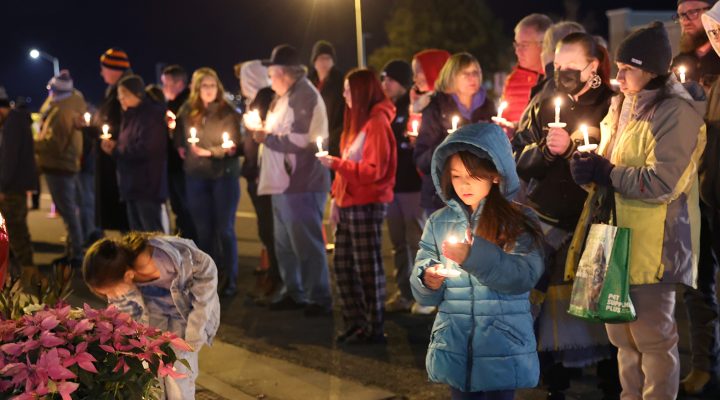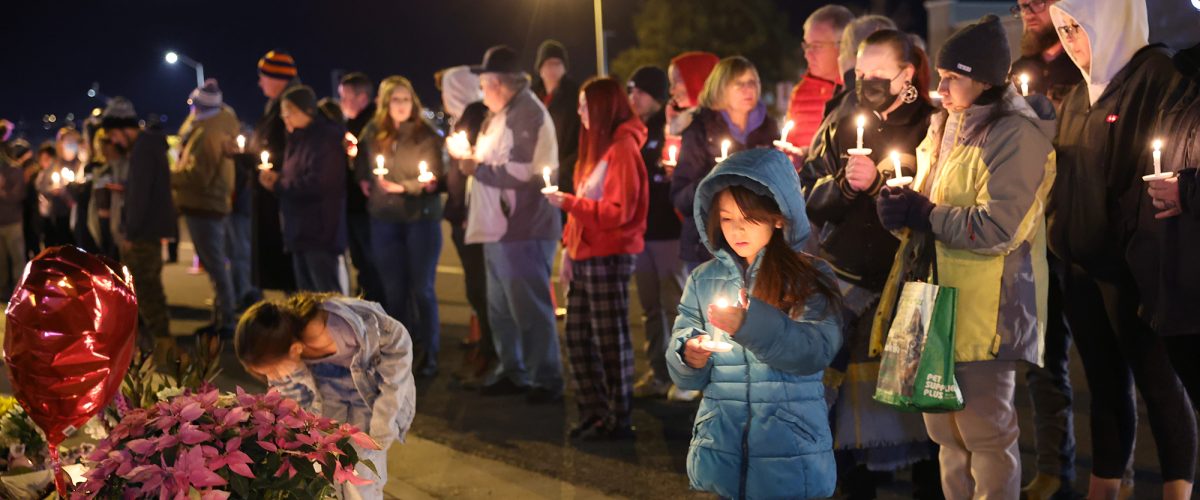It’s been more than a year since a man armed with an AR-15-style rifle walked into a gay nightclub in Colorado Springs and opened fire.
It was Nov. 19, 2022, the day before Transgender Day of Remembrance.
Club Q was the first LGBTQ nightclub I ever went to, when I first came out back in college.
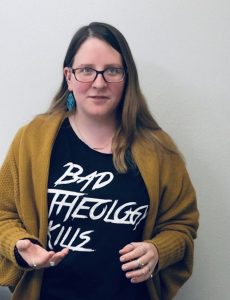
Eleanor Skelton
I am a nonbinary, neurodivergent bisexual person assigned female at birth. My sexuality and gender identity are an important part of my identity, especially since most of my life, I was told it was a sin.
I came out publicly after the Pulse shooting in Orlando in 2016, through an article that I wrote for Huffington Post: “I Am the Thing That I Was Taught to Hate.”
But the Club Q shooting was even more personal. I could have been there when it happened.
My town in the national news
I dated my first girlfriend in Colorado Springs. I went to Club Q several times in 2014 and 2015, while I was still figuring out I am queer.
Because I was a broke college student, I often couldn’t afford the cover fee. But my friends and I went to Club Q several times while in the middle of self-discovery and deconstructing the religion we were raised in.
Last year in late November, I was on a road trip to the Grand Canyon and other national parks with a friend along with our dogs when the news broke early that Sunday morning. I had just woken up around 8 a.m. My phone buzzed with a Twitter notification saying multiple people died in an overnight shooting at Club Q in Colorado Springs.
Another push alert followed minutes later, this time from Apple News. Time Magazine was reporting: “5 killed and several injured in shooting at LGBTQ nightclub in Colorado Springs. Here’s what we know so far.”
“That’s when I knew this was not just a local, domestic disturbance, but yet another horrific mass shooting making national news.”
That’s when I knew this was not just a local, domestic disturbance, but yet another horrific mass shooting making national news.
I’ve been a journalist for more than 10 years. I’m used to breaking news. But I was in shock and disbelief.
I tuned into NPR on satellite radio as we continued our road trip, listening to the only facts we knew at the time being repeated by the radio hosts. The gunman was in custody. Some of the survivors fled to a gas station across the street, only a few blocks away from my first apartment back in college.
I never will forget how odd it felt to hear journalists reporting on a national level, digging up detailed information about a community I lived in for nine years, trying to describe it to everyone in America who was listening in that moment.
Most already were assuming it was a hate crime since Colorado Springs is known as a hotbed of evangelical organizations that are largely anti-gay marriage and not affirming of LGBTQ people. Club Q was the only gay nightclub in the city until recently.
I was part of this story and not at the same time. All these facts and dates and names felt clinical and distant.
As I drove deeper into Arizona, I listened to the NPR reporters, then turned my radio dial to CNN or MSNBC to see if they had any new information.
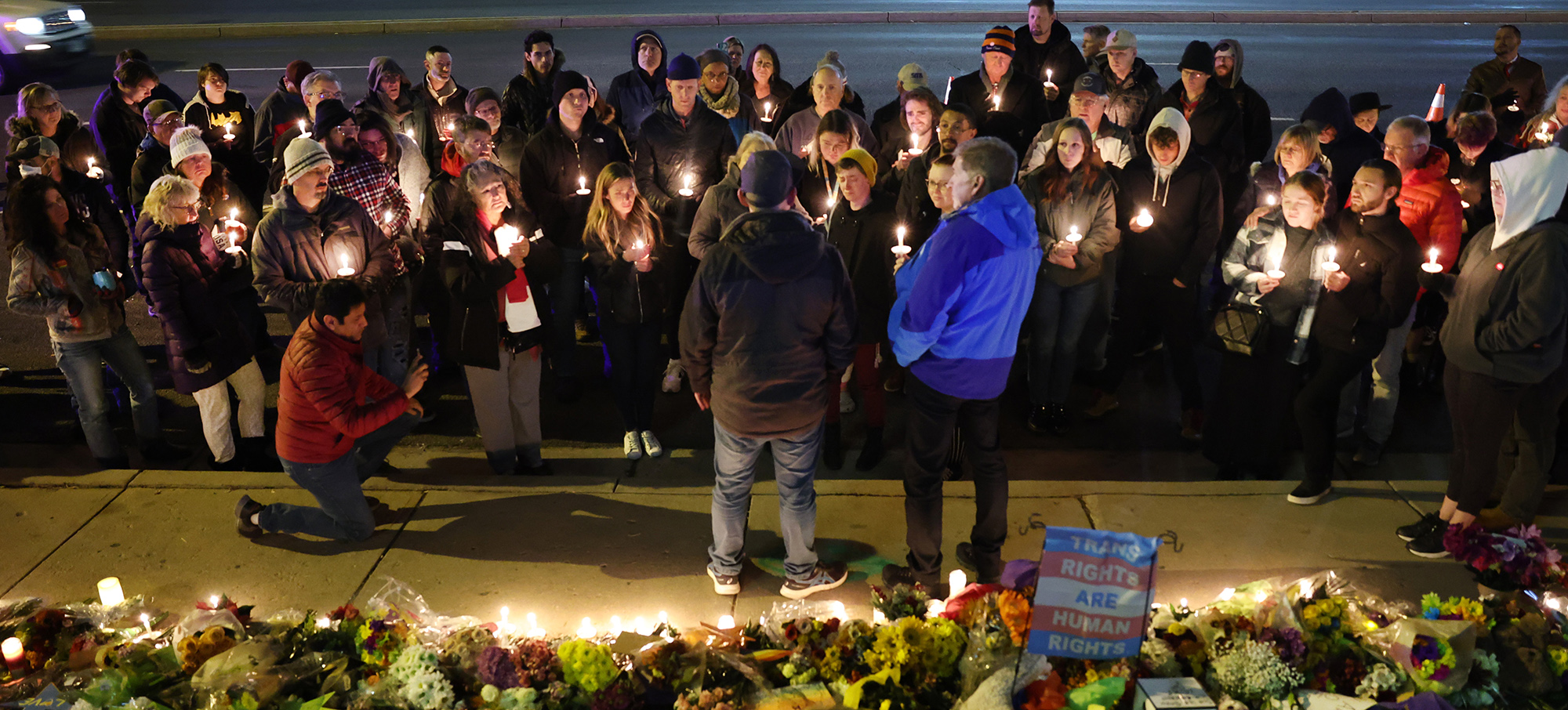
People hold a vigil at a makeshift memorial near the Club Q nightclub on November 20, 2022, in Colorado Springs, Colo. Yesterday, a 22-year-old gunman entered the LGBTQ nightclub and opened fire, killing at least five people and injuring 25 others before being stopped by club patrons. (Photo by Scott Olson/Getty Images)
Back to the scene of the crime
On Black Friday, my road trip ended back in Colorado Springs to see friends and family. The first thing I did was drive to the memorial outside Club Q.
A man was playing a piano in the back of a pickup truck in the fading golden winter afternoon light. Some people hugged or whispered to each other. Most stood in silence, lighting candles, leaving flowers or reading tributes left behind, as if they were frozen in this painful moment together.
A reporter and her photographer finished interviewing one of the club’s co-owners. I told her I had lived in Colorado Springs and this was the third mass shooting to be in the national spotlight since I’ve called the city home.
When I was in my senior year of high school, two teenage girls were killed at New Life Church. Right after I graduated from college, a man walked into the Planned Parenthood clinic on Black Friday in 2015, shooting and killing three people, including a police officer from my college — and now this.
She asked me if I would repeat that for the camera, and I said yes.
“What are your thoughts on this tragedy, having gone to church in the same city as the church that had a mass shooting, a police officer from your college is killed in another shooting, and now there’s been a mass shooting at a nightclub you went to in college?” she asked.
“It’s like a wound that keeps getting reopened over and over in this community.”
“It’s like a wound that keeps getting reopened over and over in this community,” I said, looking directly into the camera. “We haven’t healed from any of the other losses, but it just keeps happening. I’m not an expert on policy, and I don’t want to get into a debate, but I do think we have to do something to prevent more of these tragedies.”
Being interviewed is always surreal for me since I am a journalist myself.
In May 2022, I did an interview with a TV station in Texas, giving my thoughts about being a teacher in the aftermath of the mass shooting at the elementary school in Uvalde. Now, six months later, I was talking to another TV reporter about a shooting at the first gay nightclub I ever went to.
As a queer person, I felt like I had to speak while we had the world’s attention. I wanted people to care.
If the gunman had come years before, on a night when I was there, it could have been me and my friends on the memorial wall, along with the portraits of the victims’ faces.
I wanted to help put this tragic story into context, as someone who knows Colorado Springs and is part of the LGBTQ community.
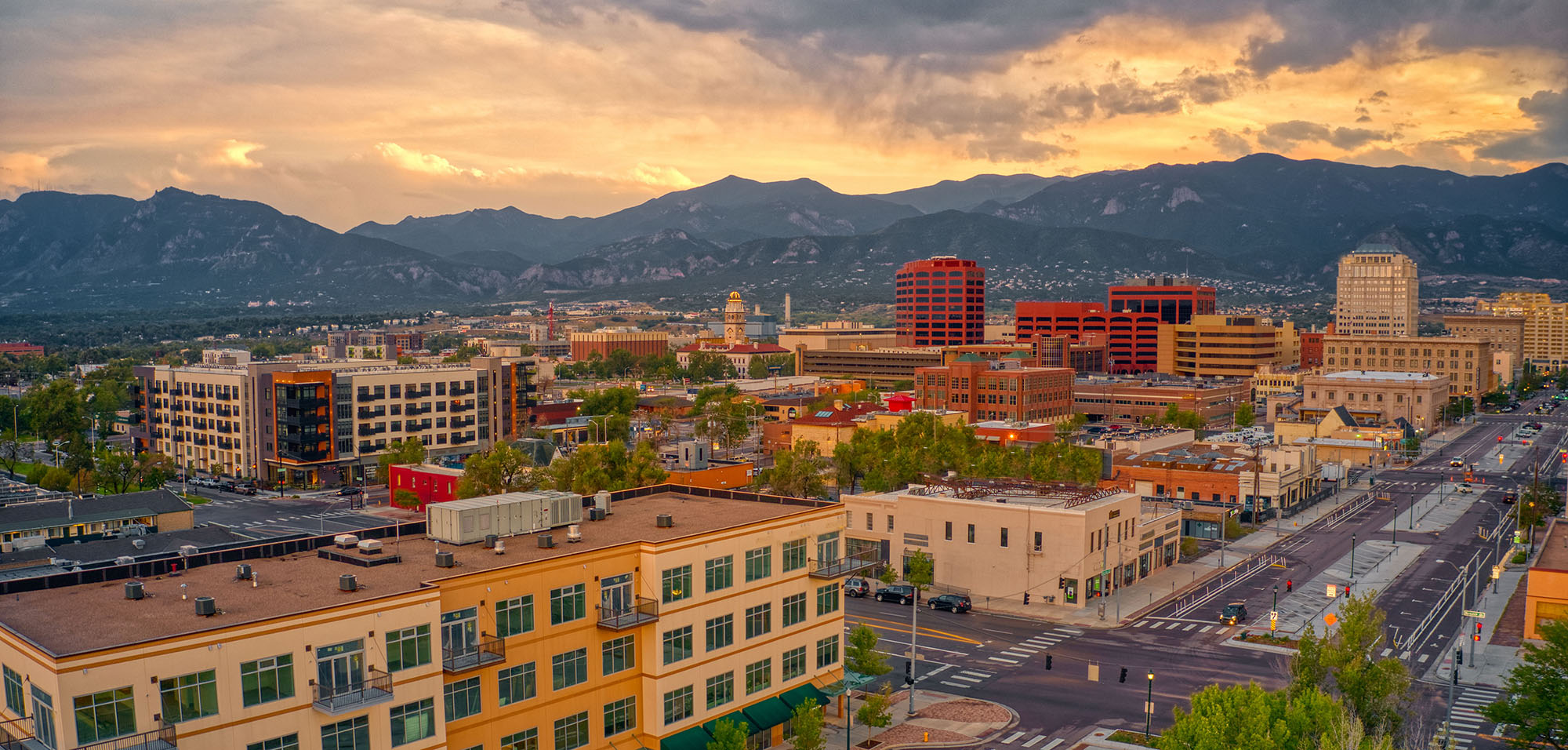
Aerial View of Colorado Springs at Dusk (Shutterstock)
Colorado Springs
Just days after the shooting, someone spray-painted on Focus on the Family’s sign: “Their blood is on your hands. Five lives taken.”
Journalist and author of The Family Jeff Sharlet wrote for Harper’s magazine in 2005 that Colorado Springs is “home to the greatest concentration of fundamentalist Christian activist groups in American history, both as a last stand and as a kind of utopia in the making.”
“Evangelicals in Colorado Springs refer to the city both as an evangelical Mecca and the Vatican of the Religious Right.”
Evangelicals in Colorado Springs refer to the city both as an evangelical Mecca and the Vatican of the Religious Right.
Disgraced founder of New Life Church and former pastor Ted Haggard encouraged church members to think of their city as their Jerusalem, according to the Colorado Springs Gazette. New Life Church is one of Colorado Springs’ numerous megachurches.
When New Life Church was more charismatic under Haggard’s leadership, members often anointed streets, intersections, buildings all over town and even their neighbors’ driveways to ward off demons in an attempt to claim the city for Jesus.
My family moved to Colorado Springs in early 2006, during the height of evangelical influence and political power in the city.
IFB culture
I am a survivor of a Christian fundamentalist cult known as the Independent Fundamental Baptist movement.
Growing up, I was homeschooled from kindergarten through my senior year of high school in a high-control religious environment, a subset of Christian fundamentalism now known as the Quiverful movement. The same brand of Christianity practiced by the Duggars, rooted in Bill Gothard’s IBLP/ATI cult theology.
If you’ve watched Shiny Happy People: Duggar Family Secrets on Amazon Prime, my life was very similar. My family had fewer children, but I was expected as the eldest daughter to be a sister-mom to my younger siblings.
“As a person assigned female at birth in this subculture, I had no autonomy.”
My parents and my church wanted me to live at home under my father’s authority until marriage, when I would be transferred to my husband’s authority. As a person assigned female at birth in this subculture, I had no autonomy.
Although Quiverful teachings discourage AFAB people from going to college, my dad wanted me to take over his business and keep it in the family. While living in my parents’ home, I started attending the University of Colorado at Colorado Springs, which led to me questioning their beliefs and ultimately moving out on my own and being ostracized by my family and their church community for the next several years.
For two years, I was not allowed to communicate with my little brother and sister.
When I began realizing I’m gay, the MOSAIC office at UCCS and Club Q became safe places for me to ask questions.
Many others raised in hyper-religious families also took refuge at Club Q. The friends who went with me had been raised in the United Pentecostal Church, also known as the Apostolic Pentecostal Church, with similar restrictive teachings.
Their pastors controlled whether or not they were even allowed to talk to a boy. If they wanted to date, they had to ask the pastor’s permission and he had to pray about it and tell them what God’s will was. Same thing if they wanted to get engaged or married.
Imagine what happens if you realize you’re gay, and you’re in a church like that.
We need safe spaces
We need safe spaces. Especially if you come from a family that is not safe.
Now it’s been a year since the shooting, but we are still grieving. I still have nightmares — that the shooting is happening all over again, or another shooting is about to happen at another LGBTQ nightclub.
Every time I go to a movie theater, a Walmart or a drag brunch, the question is the same: Am I safe? Will someone try to shoot me?
We are still trying to heal. To pick up the pieces.
Representation matters, and these tragedies need to be addressed, whether they happen at elementary schools or gay nightclubs.
All our lives matter.
Eleanor Skelton is a freelance journalist and educator, homeschooled kindergarten through senior year of high school within the high-demand subculture of fundamentalist Christianity during the 1990s and 2000s before completing a bachelor’s degree at the University of Colorado at Colorado Springs. Eleanor speaks about their experiences in leaving the Independent Fundamental Baptist movement to advocate for other cult survivors. They are currently enrolled in a journalism graduate program at the University of Alabama and write about deconstruction and mental health at www.eleanorskelton.com.
Related articles:
Murders at Club Q open debate on American gun violence once again | Analysis by Mallory Challis
It’s a short distance from your Thanksgiving table jokes to queer people being shot dead | Opinion by Amber Cantorna
If you want to offer thoughts and prayers after the latest massacre at a queer club, do so with your actions | Opinion by Susan Shaw

